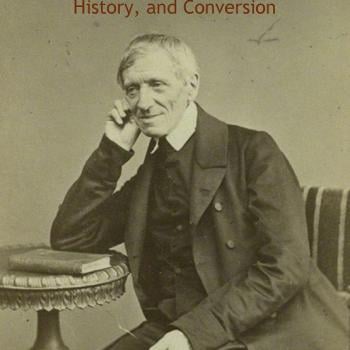
(4-3-10)
* * * * *
First of all, before I get to my argument, let’s get some preliminaries out of the way. Readers can rest assured that I greatly love and revere Holy Scripture as much as any Protestant does. That’s not at issue. The issue is sola Scriptura: whether Scripture is the only infallible authority. Scripture is a set of divinely inspired books. Sola Scriptura is a principle or rule of faith that has to do with how much authority Scripture has, and its relation to Christian Tradition and the Christian Church. Thus, they are two very distinct things: related, but essentially different.
A fair number of Protestants (especially zealous online apologists) have a very annoying habit of equating sola Scriptura (i.e., the view that Scripture is the only final and infallible authority in the Christian life) and love and reverence for Scripture, as if they were exactly the same thing. For some Protestants, in other words, for a Catholic to deny sola Scriptura automatically means that he is somehow demoting or denigrating or despising Scripture. It’s either Protestantism or the highway. No non-Protestant (according to this mentality of some — not all — Protestants) can love Scripture, by definition or inexorable conclusion, if they also accept the authority of tradition and the Church (both of which are repeatedly asserted in Scripture itself).
One can readily observe both the arrogance and muddleheadedness of such a stance: especially the more one studies what is actually in Scripture. The one who reveres Scripture the most is the one who follows its manifest teachings, and doesn’t pick and choose what he likes and dislikes (“cafeteria Christianity”). Since an authoritative tradition and an authoritative Church are very much part of biblical teaching (as I will demonstrate below), to include them in one’s paradigm of authority is to accept and love Scripture, not to “demote” it. It is taking the Bible at its word.
But because of tunnel vision, wooden, either/or, arrogant, illogical thinking of this sort (sadly, very common), I have to defend my love of Scripture simply because I am a Catholic and deny sola Scriptura. But once in a while it is worth it to set the record straight.
My position, argued many times, is that Scripture is for the most part clear and easy to understand (especially in the major issues), for those willing to follow it where it leads, and led by the Holy Spirit and regenerate. I have long since argued, for example, that the Holy Trinity can easily be defended by Scripture alone. I did this myself 28 years ago, and the argument is just as strong now as it ever was.
The Church is needed not so much because the Bible is unclear, but because the heretical mindset can and will twist and distort the Scripture any number of ways; therefore an authority outside of Scripture is necessary in order to confirm true doctrine and to maintain orthodoxy. The history of Protestantism and all the relativism and doctrinal chaos therein amply illustrates this. Thus, St. Francis de Sales (1567-1622, a Doctor of the Church), writes (thanks to blog regular Ben M. for this):
It is quite true that Holy Scripture contains fully and clearly all doctrines necessary to salvation we do not doubt it; It is also true that it is very useful to interpret Holy Scripture by comparing passages together, and bringing the whole into an analysis of doctrine. But I must always believe and affirm that, notwithstanding the admirable perspicuity of Holy Scripture in all things necessary to our salvation, the human mind does not always find its right meaning but is liable to err, and practically does very often err in interpreting passages which are of great importance to the confirmation of the Faith.
Witness the Lutheran and Calvinistic writers; they, though leaders of the so-called Reformation, are involved in irreconcilable differences as to the meaning of the words of institution of the Holy Eucharist; and while each side maintains that they have diligently and faithfully studied the sense of those words, taking them with the context of Holy Scripture generally, and comparing the whole with the analogy of Faith, nevertheless they come to very different conclusions. The Word of God is clear enough, but our human minds are cloudy, and, like bats, cannot face the light.
(To a Gentleman on the Right Use of Scripture, July 7, 1619; A selection from the spiritual letters of s. Francis de Sales, Bishop and Prince of Geneva, 1880, pp. 162-163)
Now that the nonsense, and flotsam and jetsam is cleared away, we can move ahead and commence our present topic:
Ephesians 4:4-6, 11-16, 21-25 There is one body and one Spirit, just as you were called to the one hope that belongs to your call, [5] one Lord, one faith, one baptism, [6] one God and Father of us all, who is above all and through all and in all. . . . [11] And his gifts were that some should be apostles, some prophets, some evangelists, some pastors and teachers, [12] to equip the saints for the work of ministry, for building up the body of Christ, [13] until we all attain to the unity of the faith and of the knowledge of the Son of God, to mature manhood, to the measure of the stature of the fulness of Christ; [14] so that we may no longer be children, tossed to and fro and carried about with every wind of doctrine, by the cunning of men, by their craftiness in deceitful wiles. [15] Rather, speaking the truth in love, we are to grow up in every way into him who is the head, into Christ, [16] from whom the whole body, joined and knit together by every joint with which it is supplied, when each part is working properly, makes bodily growth and upbuilds itself in love. . . . [21] assuming that you have heard about him and were taught in him, as the truth is in Jesus. [22] Put off your old nature which belongs to your former manner of life and is corrupt through deceitful lusts, [23] and be renewed in the spirit of your minds, [24] and put on the new nature, created after the likeness of God in true righteousness and holiness. [25] Therefore, putting away falsehood, let every one speak the truth with his neighbor, for we are members one of another.
[red = Church theme / blue = truth and falsity and doctrinal motifs / purple = theosis or unity with God or indwelling elements]
I made an analogical argument from Ephesians 4:11-15 above in my book, A Biblical Defense of Catholicism (pp. 15-16), in response to the alleged sola Scriptura prooftext, 2 Timothy 3:16-17. That book was completed in 1996, and parts of it were written as early as 1991. Here is the heart of that argument:
Note that in Ephesians 4:11-15 the Christian believer is “equipped,” “built up,” brought into “unity and mature manhood,” “knowledge” of Jesus, “the fulness of Christ,” and even preserved from doctrinal confusion by means of the teaching function of the Church. This is a far stronger statement of the “perfecting” of the saints than 2 Timothy 3:16-17, yet it doesn’t even mention Scripture.
Therefore, the Protestant interpretation of 2 Timothy 3:16-17 proves too much, since if all nonscriptural elements are excluded in 2 Timothy, then, by analogy, Scripture would logically have to be excluded in Ephesians. It is far more reasonable to synthesize the two passages in an inclusive, complementary fashion, by recognizing that the mere absence of one or more elements in one passage does not mean that they are nonexistent. Thus, the Church and Scripture are both equally necessary and important for teaching. This is precisely the Catholic view. Neither passage is intended in an exclusive sense.
The fact remains that sola Scriptura is nowhere taught in Scripture. I’ve seen the innumerable attempted prooftexts, and have written an entire book about the topic [and now a second one, too]. None of them succeed. It’s merely an assumed, axiomatic viewpoint imposed onto Holy Scripture. Scripture itself gives equal authority to the Church and to Sacred, Apostolic Tradition. And we see that in the text under present consideration.
To expand the original argument regarding Ephesians 4 a bit: Protestants are saying that Scripture is the rule of faith. It is the sole and ultimate criterion for theological doctrine and truth, insofar as it is regarded as the only infallible authority. Therefore, it stands to reason that in a passage talking about truth over and over again, and denouncing falsehood, and referring to “one faith” and “the unity of faith”, that Scripture would likely be mentioned (under the erroneous Protestant premise). It’s not absolutely necessary, but it would be probable, I think.
This would be a logical place for Paul to reiterate that the Scripture is the rule of faith. But he never does that. He refers repeatedly to truth and denounces falsehood, and refers to the Church over and over: “one body”; [listing of Church offices]; “body of Christ”; “the whole body”; “bodily growth”; “members of one another”.
Now, under Catholic assumptions of the “three-legged stool” (Church, Scripture, Tradition), this is perfectly plausible and would be predictable. Not all have to be mentioned in the same context. Any one of them can be (or all of them, or any combination thereof), because they are all authoritative.
In this case, it is the Church that is highlighted (which is why I compared it to 1 Tim 3:15: the Church as the “pillar and bulwark of the truth”). In other places, tradition is synonymous with “truth” or “the gospel” or “the faith” and other synonyms (as I have shown elsewhere).
But granting a view where Scripture, not the Church, is the ground of truth and the only infallible rule of faith, always and necessarily, it strikes me as quite odd that in this passage, filled with allusions to truth and falsity, the Bible is never mentioned. This is not (lest we be witlessly accused of it yet again) “running down the Bible” (!); it is, rather, evidence against the unbiblical doctrine of sola Scriptura.
The words “Scripture” or “Scriptures” appear 51 times in the New Testament. Yet in eight of his thirteen epistles (2 Corinthians, Ephesians, Philippians, Colossians, 1 & 2 Thessalonians, Titus, Philemon) St. Paul (it may be surprising to learn) never uses either of these words. He uses it only 14 times altogether: in Romans (6), 1 Corinthians (2), Galatians (3), 1 Timothy (2), and 2 Timothy (1).
Likewise, “word of God” appears 43 times in the New Testament, and many of these (as in Old Testament prophetic utterances) are intended in the sense of “oral proclamation” rather than “Scripture” (especially apart from the Gospels). St. Paul uses the phrase only ten times, in nine different epistles. And it is by no means certain that any individual instance refers without question specifically to Holy Scripture, rather than to oral proclamation of apostolic tradition. I suspect that it is much more likely the latter sense in most or all cases.
But, to be fair, I won’t include this phrase in my analysis, and will also do the same with regard to “gospel.” In a way that was preaching Scripture (based on OT messianic passages; in another sense it was an oral tradition with radically new elements. I’ll consider both of these a “wash” as to the relation between Scripture and tradition / Church. But respectable arguments could be made either way, I think.
If we survey “Body (of Christ)” in Paul we find 19 appearances:
Romans “body of Christ” [1] (7:4) / “body” [2] (12:4-5)
1 Corinthians “body” [5] (10:17; 12:12-13, 25, 27; + several more times in making analogies to the human body)
Ephesians “his body” [3] (1:23: 5:23, 30) / “body” [3] (3:6; 4:4, 16) / “body of Christ” [1] (4:12)
Colossians “his body” [1] (1:24) / “body” [3] (1:18; 2:19; 3:15)
And here is Paul’s use of “Church” / ekklesia (in more than merely a local sense of congregation or building) in his epistles (20 total times):
1 Corinthians [6] (5:12; 6:4; 10:32; 11:22; 12:28; 15:9)
Galatians [1] (1:13)
Ephesians [9] (1:22; 3:10, 21; 5:23-25, 27, 29, 32)
Philippians [1] (3:6)
Colossians [2] (1:18, 24)
1 Timothy [1] (3:15)
Likewise, here is Paul’s four uses of (apostolic) “tradition(s)” (paradosis):
1 Corinthians [1] (11:2)
Colossians [1] (2:8)
2 Thessalonians [2] (2:15; 3:6)
But the word “tradition” is not the only word Paul uses for this notion, by a long shot. There is also the concept of “receiving” (tradition) and “delivering” or passing it on. Three of the above passages on “tradition” contain this motif. This mention of some sort of tradition passed down (primarily orally; through preaching) can be seen in passages such as 1 Corinthians 11:23; 15:1-2; 15:3; Galatians 1:9, 12; 1 Thessalonians 2:13, 2 Timothy 1:13; 2:2, for eight more instances.
There are at least fifteen other passages that exhibit the notion of apostolic (and oral) tradition, expressed in various different ways (including “word of God,” “preaching,” etc.):
Romans [3] (6:17; 10:8; 16:25)
1 Corinthians [1] (1:18)
2 Corinthians [1] (3:6)
Ephesians [1] (1:13)
Philippians [2] (2:16; 4:9)
Colossians [2] (1:5; 1:6)
1 Thessalonians [1] (1:6)
2 Thessalonians [1] (3:14)
2 Timothy [3] (4:2, 15, 17)
But let us be as fair-minded as we can and anticipate one probable objection. One could plausibly contend that when Paul cited Old Testament Scripture he was, by that action, giving Scripture authority, and this would be the equivalent of mentioning (the word) “Scripture”. I think this is a valid point. St. Paul made 84 such citations (I found a wonderful chart that gives all the OT citations in the NT). Here they are (minus already-recorded instances of “Scripture” being mentioned):
Romans [44] (2:6; 24; 3:4; 10-18; 4:7,8, 17, 18, 22; 8:36; 9:7, 9, 12, 13, 15, 20, 25-26, 27-28, 29, 33; 10:5, 6-8, 13, 15, 16, 18, 19, 20, 21; 11:3, 4, 8, 9, 26-27, 34-35; 12:19, 20; 13:9; 14:11; 15:3, 9, 10, 11, 12, 21)
1 Corinthians [18] (1:19, 31; 2:9, 16; 3:19, 20; 5:13; 6:16; 9:9; 10:7, 26, 28; 14:21; 15:27, 32, 45, 54, 55;
2 Corinthians [8] 4:13, 6:2, 16, 17-18; 8:15; 9:9; 10:17; 13:1
Galatians [7] 3:6, 10, 11, 12, 13; 4:27; 5:14
Ephesians [6] 4:8, 25, 26; 5:14, 31; 6:2-3
Philippians [1] 2:10-11
By the same token, if a citation of the Old Testament is to be regarded as evidence in favor of Paul having Scripture in mind, then I submit that several terms describing the content of the Christian faith without mentioning Scripture are likewise (by this somewhat subjective method) reasonably categorized under “tradition.” Here I would add the following:
Romans “the truth” [1] (2:8) / “the doctrine” [1] (16:17)
1 Corinthians “the truth” [1] (2:13) / “my message” [1] (2:4) / “supernatural Rock which followed them, and the Rock was Christ” [an oral tradition not in the OT; 1] (10:4)
2 Corinthians “the truth” [3] (4:2; 11:10; 13:8) / “message of reconciliation” [1] (5:19) / “ministers of a new covenant, not in a written code but in the Spirit; for the written code kills, but the Spirit gives life” [1] (3:6)
Galatians “the faith” [1] (1:23) / “the truth” [1] (5:7)
Ephesians “the faith” [1] (4:13)
Philippians “the faith” [1] (1:27)
Colossians “the faith” [2] (1:23; 2:7) / “the truth” [1] (1:5)
1 Thessalonians “the truth” [3] (2:10, 12, 13)
1 Timothy “the faith” [7] (1:2; 3:9, 13; 4:1; 5:8; 6:10, 21) / “the truth” [2] (2:4; 4:3) / “the commandment” [1] (6:14) / “doctrine” [1] (4:6) / “teaching” [2] (4:16; 6:1)
2 Timothy “the faith” [1] (4:7) / “the truth” [6] (1:14; 2:18, 25; 3:7, 8; 4:4) / “message” [2] (4:15, 17)
Titus “the faith” [2] (1:13; 3:15) / “the truth” [1] (1:1) / “doctrine” [1] (2:10)
This adds up to 46 more times where Paul mentions tradition / received and passed-down doctrine, using a similar term or concept. In surveying Paul’s thought-world, then, as indicated by his choices of words and notions, in his teaching of the gospel and the content of the Christian faith in his epistles, we arrive at the following tally:
“Scripture(s)”: 14 + 84 citations of OT = 98
“Church” (20) and “Body (of Christ)” (19) = 39
“Tradition” and equivalent terms and concepts: 73
We can see that the tradition and Church legs of the “three-legged stool” are indeed prominent and together make up 53% of the 210 total instances, whereas Scripture appears 47% of the time (112-98). Moreover, I have not included obvious aspects of Church authority such as bishops and elders; the Jerusalem Council, etc. That would add even more non-scriptural authority to the mix. Let’s see how Paul’s word usage breaks down for each of his 13 books (Philemon contains no such references):
Romans “Scripture(s)”: 50 / “Church” and “Body”: 3 / “Tradition” and equivalents: 5
1 Corinthians “Scripture(s)”: 20 / “Church” and “Body”: 11 / “Tradition” and equivalents: 8
2 Corinthians “Scripture(s)”: 8 / “Church” and “Body”: 0 / “Tradition” and equivalents: 6
Galatians “Scripture(s)”: 10 / “Church” and “Body”: 1 / “Tradition” and equivalents: 4
Ephesians “Scripture(s)”: 6 / “Church” and “Body”: 16 / “Tradition” and equivalents: 2
Philippians “Scripture(s)”: 1 / “Church” and “Body”: 1 / “Tradition” and equivalents: 3
Colossians “Scripture(s)”: 0 / “Church” and “Body”: 6 / “Tradition” and equivalents: 6
1 Thessalonians “Scripture(s)”: 0 / “Church” and “Body”: 0 / “Tradition” and equivalents: 5
2 Thessalonians “Scripture(s)”: 0 / “Church” and “Body”: 0 / “Tradition” and equivalents: 3
1 Timothy “Scripture(s)”: 2 / “Church” and “Body”: 1 / “Tradition” and equivalents: 13
2 Timothy “Scripture(s)”: 1 / “Church” and “Body”: 0 / “Tradition” and equivalents: 14
Titus “Tradition” and equivalents: 4
Some (I think) interesting facts drawn from the above survey:
1) In eight of the twelve epistles above, the combination Church/Tradition appears more than Scripture. In six of these eight, the “tradition” category alone outnumbers Scripture; two by very wide margins (2 Timothy: 14-1; 1 Timothy: 13-2).
2) In two of the four books with more mention of Scripture, the tally is very close (1 Corinthians: 20-19; 2 Corinthians: 8-6). Only two have lopsided margins (Romans: 50-8; Galatians: 10-5). In both these cases, Church/Tradition still would have prevailed if it weren’t for including OT citations. And in the two books to the Corinthians, without citations, the margins would also have been very wide in favor of non-Scripture.
3) Colossians, 1 & 2 Thessalonians, Titus, and Philemon neither mention “Scripture” nor cite the OT, and Philippians doesn’t mention the word and makes just one OT citation.
4) In Ephesians, the Church/Tradition ratio to Scripture is 18-6; other books are similar: Philippians (4-1), Colossians (12-0), 1 Thessalonians (5-0), 2 Thessalonians (3-0), Titus (4-0). Would any sola Scriptura advocate have predicted such an outcome before studying these words? Not likely . . .
5) If it were not for Paul’s massive citing of the OT in Romans, the figures would be very lopsided indeed, tilting toward Church and tradition. But even in Romans, Church /tradition notions appear eight times, which is more than “Scripture” / OT citations appear in nine epistles, and tied with 2 Corinthians. But citation of the OT is just as consistent with the Catholic “three-legged stool” rule of faith as it is with sola Scriptura, and doesn’t prove the latter at all. All his frequent citations prove is that he wanted to make an elaborate case drawing from old covenant precedent. In any event, we must try to find some objective, fair way to do these word comparisons, and I have done my best.
I conclude, then, that it is implausible for sola Scriptura to be considered the Pauline rule of faith. The biblical facts just don’t add up.

















